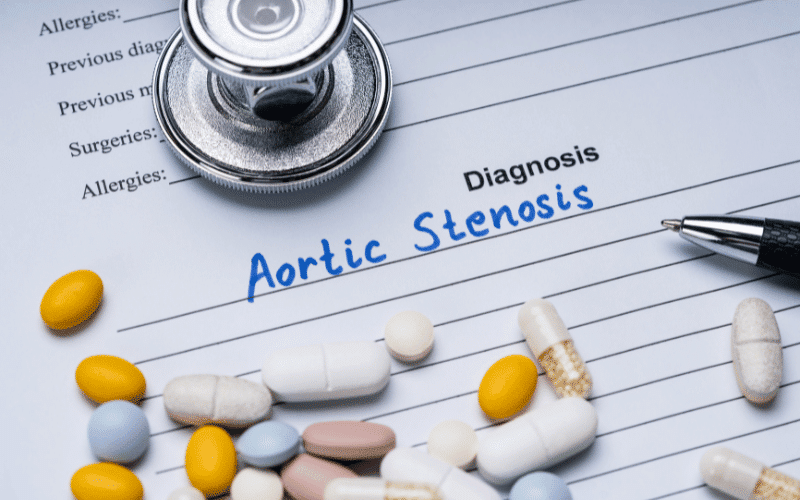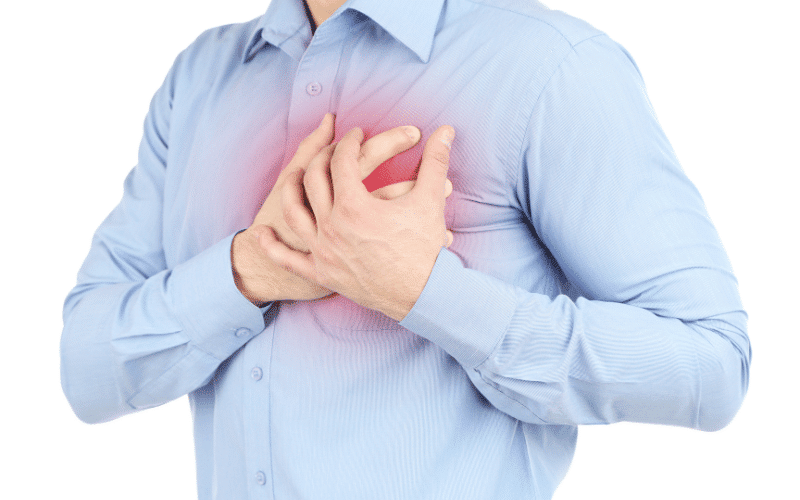Introduction: Recognizing the Symptoms of Aortic Stenosis

Aortic stenosis is a serious condition that affects the heart’s aortic valve. The aortic valve is responsible for regulating blood flow from the heart to the rest of the body. When this valve narrows or stiffens, it can impede blood flow and cause a range of symptoms. Being aware of these symptoms can be crucial in seeking timely treatment and improving overall health outcomes.
In this article, we’ll discuss 15 common symptoms associated with aortic stenosis, providing valuable information to help you better understand this condition. We will also discuss the importance of recognizing these symptoms early and seeking professional help to manage and treat aortic stenosis effectively.
Aortic stenosis is a progressive condition, meaning it can worsen over time if left untreated. It’s essential to be aware of the signs and symptoms so that you can take action when necessary. In some cases, early intervention can prevent further complications, such as heart failure, and improve the quality of life for those affected by aortic stenosis.
Aortic stenosis affects people of all ages, but it is more common in older adults. As the population continues to age, it becomes increasingly important to educate individuals about the signs and symptoms of this condition. Knowledge is power, and being informed about aortic stenosis can help you advocate for your health and the health of your loved ones.
Understanding the symptoms of aortic stenosis can be the first step in getting the help you need. With proper diagnosis and treatment, many people can manage this condition and lead healthy, active lives. Keep reading to learn more about the 15 aortic stenosis symptoms you need to know.
Symptom 1. Chest Pain (Angina): The Warning Sign of Aortic Stenosis

When we hear about chest pain, our thoughts often dart towards the heart – and for a good reason. Angina, a distinct type of chest pain, can indeed be the body’s SOS call in response to a heart straining to overcome the obstacles of aortic stenosis. This heart-related discomfort, much like an uninvited guest, can make its presence felt in different ways, and it often demands your immediate attention.
Angina is unique. It’s not just a twinge; it’s a sensation of pressure that can radiate outwards, reaching not only your chest but also your arms, neck, jaw, shoulder, or back. Imagine a giant hand squeezing your heart, or a heavy weight pressing down on your chest. That’s what angina can feel like. It’s a raw, grating sensation that you can’t just shake off with a change in position or a few calming breaths.
While there are many possible causes of chest pain, angina is notably connected to physical exertion or stress. The narrowed aorta struggles to pump enough oxygen-rich blood to meet the increased demand during these periods. When physical exertion ends, or stress levels drop, the pain typically subsides. The association between physical activity or emotional stress and chest pain can help distinguish angina from other types of chest discomfort.
Yet, it’s not only about physical effort. A cold winter’s day or a large meal can also bring on angina. The common denominator? Anything that makes your heart work harder can trigger this distress signal. But the real kicker is that aortic stenosis doesn’t always stick to the script. At times, angina can make its appearance even at rest, throwing sufferers off their stride.
The relationship between aortic stenosis and angina is complex. Aortic stenosis makes the heart labor, resulting in angina. This chest pain is a blatant alarm that all is not well in the heart department. Ignoring it would be like silencing a fire alarm while the flames are still licking at your heels. So, when chest pain turns your life into a gauntlet, it’s essential to consider aortic stenosis as a potential culprit. (1)